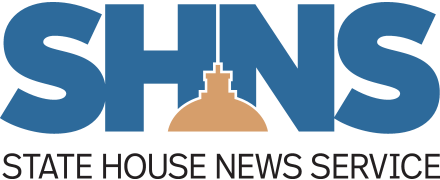BOSTON — A major health care advocacy group is urging Beacon Hill lawmakers to preserve continuing access to heavily subsidized insurance plans, which are reaching thousands of families under a two-year pilot program but with significant costs to the state.
The leader of the Massachusetts Health Connector, the state’s health insurance marketplace, declined Tuesday to speculate on the future of the ConnectorCare expansion pilot, which offers various lower-premium and no-deductible policies, plus no-cost prescriptions for chronic diseases like diabetes and hypertension.
The pilot — created through an outside section of the fiscal 2024 budget — runs through calendar year 2025, a Health Connector spokesperson said. Supporters predicted when the program was approved that it could reach 50,000 to 70,000 Massachusetts residents, and data shows that recent signups have been brisk.
The program’s future beyond 2025 will largely be dictated by decisions the Legislature and Gov. Maura Healey make in upcoming budget deliberations. State officials expect modest growth in tax revenues, with significant sums of new revenue earmarked only for transportation and education programs.
“I don’t think we’re in a position to say what we think the future may be after the pilot,” Health Connector Executive Director Audrey Morse Gasteier said at a press conference Tuesday morning when asked about next steps for the program, such as making the initiative permanent.
She continued, “What we do know is that it has been an extremely impactful pilot. It was put in place to sort of see what that kind of help would provide to folks at a bit higher of an income than had previously qualified for ConnectorCare.”
Some 55,000 people gained insurance coverage through the ConnectorCare expansion this year. The pilot, championed by the House amid the MassHealth redetermination process, expanded ConnectorCare income eligibility from 300 percent of the federal poverty level to 500 percent.
The ConnectorCare expansion pilot cost the state $64.5 million in calendar year 2024, Connector spokesperson Jason Lefferts said.
Open enrollment in 2024 marked the first time that residents earning up to $72,900 and families of four earning up to $150,000 could enroll in ConnectorCare plans.
Amy Rosenthal, executive director of Health Care For All, called the pilot “life-changing” and a “big priority” for the nonprofit advocacy group that regularly partners with the state, including on outreach throughout the sprawling MassHealth redetermination process.
“We were thrilled with the fact that the Legislature championed this and really understood the value of this,” Rosenthal told the News Service.
Rosenthal said Health Care For All is “actively involved in conversations” with House and Senate leadership about the pilot’s future. She warned discontinuing the effort would mean around 55,000 people might no longer be able to afford their insurance.
“We have a culture of coverage here in Massachusetts that everybody kind of has always been supportive of since we passed health reform, and I think this is an integral part of that,” Rosenthal said.
After Healey signed the budget with the pilot in August 2023, House Speaker Ron Mariano said he was “especially proud” of the ConnectorCare expansion.
“These are transformative decisions. You’re talking about people who don’t have health care, who have to worry about getting a flu shot, have to worry about getting a vaccine shot, let alone a physical,” Mariano said. “These people now will have an opportunity to get access to health care.”
Open enrollment is underway at the Massachusetts Health Connector, which provides access to health and dental plans for individuals, families and small businesses. Monday is the deadline for Bay Staters to enroll in plans that start on Jan. 1, as well as for existing Connector members to change plans.
State law requires Bay Staters to have health insurance.
If they’re not insured, they could face a tax penalty equivalent to half of the lowest-cost plan they could have accessed through the Connector, Morse Gasteier said.
Data as of Dec. 2 show that 389,175 people were enrolled in health insurance plans they accessed through the Connector. Seventy-five percent of that total — or 290,870 members — were enrolled in ConnectorCare programs, while 46,232 had coverage through unsubsidized plans.
Morse Gasteier said the Connector is 96% of the way toward its goal of reaching 353,000 covered individuals for January enrollment.
Under the ConnectorCare expansion, there were 39,471 people enrolled in a “3C” plan type for those earning between 300 to 400 percent of the federal poverty level as of Dec. 2. Another 16,239 members were enrolled in a “3D” type plan for those earning between 400 and 500 percent of the federal poverty level.
Morse Gasteier said officials are not expecting to see enrollment in ConnectorCare “grow exponentially” for the coming year.
“I think as we’re in open enrollment period and we’ve got a lot of new folks coming in, we do expect those numbers to grow somewhat, but we know a lot of the people who came into the pilot program were people that were already in the Connector but just didn’t qualify for ConnectorCare,” Morse Gasteier said. “So I think how sizable the ConnectorCare pilot is as we get deeper into 2025 will be a function of how many new people we bring in through open enrollment and through outreach and attention.”
The Health Connector is “forthcoming” with members that the ConnectorCare expansion is a pilot program, Morse Gasteier said.
“People need this security right now, so we don’t want to withhold that help from people or have people holding back because they might be uncertain about what that might look like a year from now or two years from now,” Morse Gasteier said. She added, “And so we always take care to be very clear with people about the benefits that they can get if they come and sign up right now.”
Find the article here.

